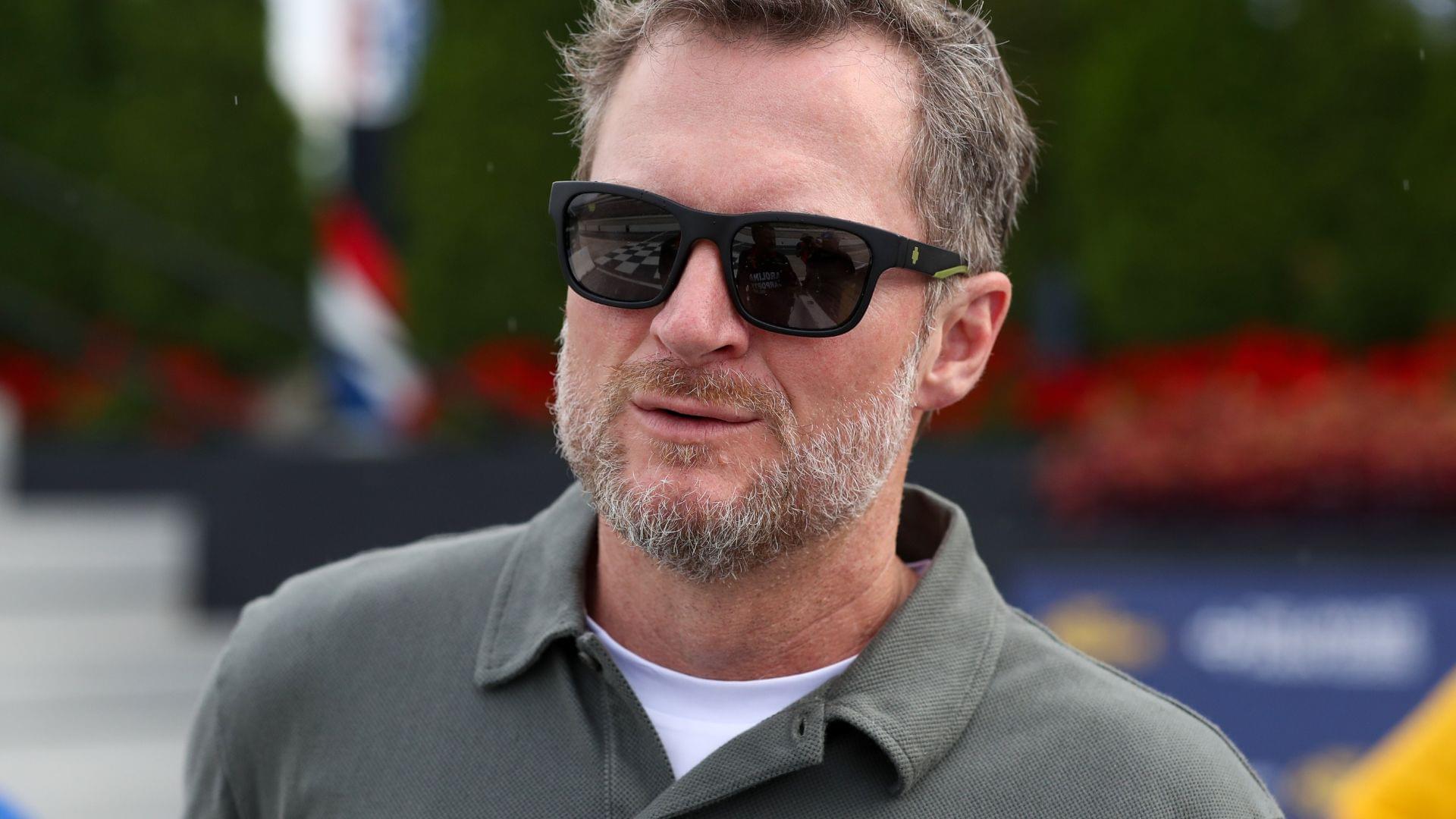Dale Earnhardt Jr. readily admits NASCAR is struggling to attract fans – both for at-track attendance and also for TV viewership – and is not afraid to say the sport is likely going to continue going through lean years until things start turning around positively.
Advertisement
Earnhardt waxed quite eloquently on his thoughts of how NASCAR should turn things around, but he also cautioned that there will not be a quick fix on this week’s edition of the Dale Jr. Download podcast. Rather, he predicted that change may take maybe 10 to 20 years before NASCAR becomes a big fan favorite again.
And there’s no guarantee, Earnhardt added, that some of the proposed changes, if made, will indeed turn things around.
“There’s a lot of emotion around the changes that may be coming for next year, and we’ve been moving through various stages of emotion through this process: excitement, debate, anticipation, apprehensive feelings around it,” Earnhardt said.
He emphasized that NASCAR’s struggles didn’t happen suddenly, and neither will its recovery.
“We’ve made decisions that clearly haven’t worked,” he explained. “We’re moving in the wrong direction in some areas, and correcting course isn’t something you can do in a season or two. If we’re serious about rebuilding this sport’s popularity, we’re talking about a 10- to 20-year process.”
The former driver and current NBC Sports analyst also urged fans and industry leaders to manage expectations as the sport experiments with potential reforms.
“Even if next year brings some smart changes, you’re not going to see huge gains right away. It’s going to take time for fans to buy in again, for the culture and excitement around NASCAR to rebuild.”
He made it clear that fans and the industry should brace for the long haul. “If you’re trying to get this sport back to where it was in its peak or anywhere close, that’s going to take your a*s a decade or two,” Earnhardt said.
That’s a long time, for sure.
One of the biggest areas he believes NASCAR should address is the current playoff format. Earnhardt has long been critical of the elimination-style system, saying it rewards short-term streaks rather than season-long excellence. He suggested two possible fixes: either eliminating the playoff altogether and crowning the driver with the most points over the full 36-race season, or shrinking the playoff from 10 races to a tighter four-race format.
“Do I believe going to a 36-race format is better? Absolutely,” Earnhardt said. “If they did change it to 36 or whatever they go to — if it’s a four-race, six-race final round, some middle ground — whatever they change it to next year, the numbers, the viewership… if anything, it’ll be just a bump better.”
He acknowledged that even a good change might only move the needle “five to ten percent better” in the short term.
For Earnhardt, the real challenge lies in rebuilding NASCAR’s foundation, restoring the cultural connection that once made it one of the most-watched sports in America.
“This getting back to where we want to go is a long game,” he said. “You don’t build something that big and that great in a 12-month period.”
He believes that the sport’s decline didn’t come from a single decision but a series of gradual shifts over the past 10 to 15 years — from scheduling and rule changes to the loss of some of its most iconic personalities. Those cumulative effects, he said, eroded the sport’s momentum, and rebuilding that fan trust will take time.
“You can destroy this thing quickly,” Earnhardt warned. “But to build it back is going to take a long period of time. If we don’t change it, if we don’t go away from what we’re doing today, we’re going to continue on this route that none of us like.”
Despite the sobering message, Earnhardt remains hopeful that meaningful changes — even small ones — can begin the process of rebuilding NASCAR’s identity. But he urged everyone involved, from fans to executives, to stay patient. “Whatever changes come, you have to buckle in and own it for a while because it’s not going to start to produce results immediately,” he said. “It’s going to take a while to build it back. It’s kind of like you’ve got to start from scratch in terms of rebuilding the reputation and popularity of the sport.”





